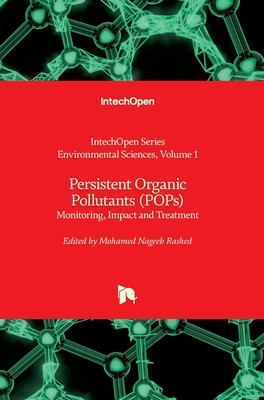
- We will send in 10–14 business days.
- Publisher: IntechOpen
- ISBN-10: 183968206X
- ISBN-13: 9781839682063
- Format: 17 x 24.4 x 1.1 cm, hardcover
- Language: English
- SAVE -10% with code: EXTRA
Persistent Organic Pollutants (POPs) (e-book) (used book) | bookbook.eu
Reviews
Description
Persistent organic pollutants (POPs) are toxic organic compounds that resist environmental degradation through biological, chemical, and photolytic processes. Many POPs are currently used as pesticides, pharmaceuticals, solvents, and industrial chemicals. Because of their persistence, POPs bioaccumulate and adversely affect human health and the environment. Persistent Organic Pollutants (POPs) - Monitoring, Impact and Treatment deals with several aspects of POP monitoring, occurrence, impact, and treatment technologies. The book is divided into two sections containing nine chapters that address such topics as the effect of POPs on wildlife, their role in hepatocarcinogenesis, treatment of POPs in wastewater, and much more.
EXTRA 10 % discount with code: EXTRA
The promotion ends in 15d.08:11:45
The discount code is valid when purchasing from 10 €. Discounts do not stack.
- Publisher: IntechOpen
- ISBN-10: 183968206X
- ISBN-13: 9781839682063
- Format: 17 x 24.4 x 1.1 cm, hardcover
- Language: English English
Persistent organic pollutants (POPs) are toxic organic compounds that resist environmental degradation through biological, chemical, and photolytic processes. Many POPs are currently used as pesticides, pharmaceuticals, solvents, and industrial chemicals. Because of their persistence, POPs bioaccumulate and adversely affect human health and the environment. Persistent Organic Pollutants (POPs) - Monitoring, Impact and Treatment deals with several aspects of POP monitoring, occurrence, impact, and treatment technologies. The book is divided into two sections containing nine chapters that address such topics as the effect of POPs on wildlife, their role in hepatocarcinogenesis, treatment of POPs in wastewater, and much more.


Reviews